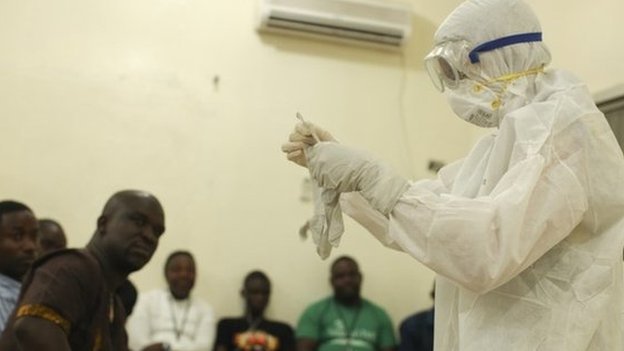The Ebola outbreak in West Africa is spreading faster than efforts to control it, World Health Organization (WHO) head Margaret Chan has said.
She told a summit of regional leaders that failure to contain it could be “catastrophic” in terms of lives lost.
But she said the virus, which has claimed 729 lives in four West African countries since February, could be stopped if well managed.
Ebola kills up to 90% of those infected.
It spreads by contact with infected blood, bodily fluids, organs – or contaminated environments.
Initial flu-like symptoms can lead to external haemorrhaging from areas like eyes and gums, and internal bleeding which can lead to organ failure.
Dr Chan was meeting the leaders of the worst-affected countries – Guinea, Liberia and Sierra Leone – to launch a new $100m (£59m; 75m euro) Ebola response plan.
Ebola since 1976


“This meeting must mark a turning point in the outbreak response,” Dr Chan said at the summit in Guinea’s capital, Conakry.
“Cases are occurring in rural areas which are difficult to access, but also in densely populated capital cities,” she said, explaining that the outbreak was the world’s deadliest and largest in terms of geographical areas.
Ebola virus disease (EVD)

- Symptoms include high fever, bleeding and central nervous system damage
- Fatality rate can reach 90%
- Incubation period is two to 21 days
- There is no vaccine or cure
- Supportive care such as rehydrating patients who have diarrhoea and vomiting can help recovery
- Fruit bats are considered to be virus’ natural host
–
Source: BBC


